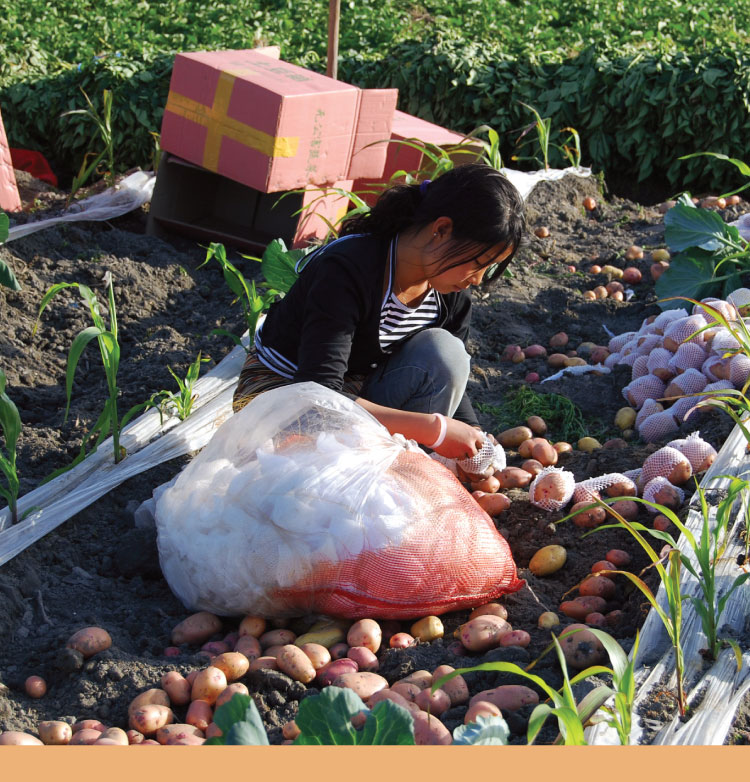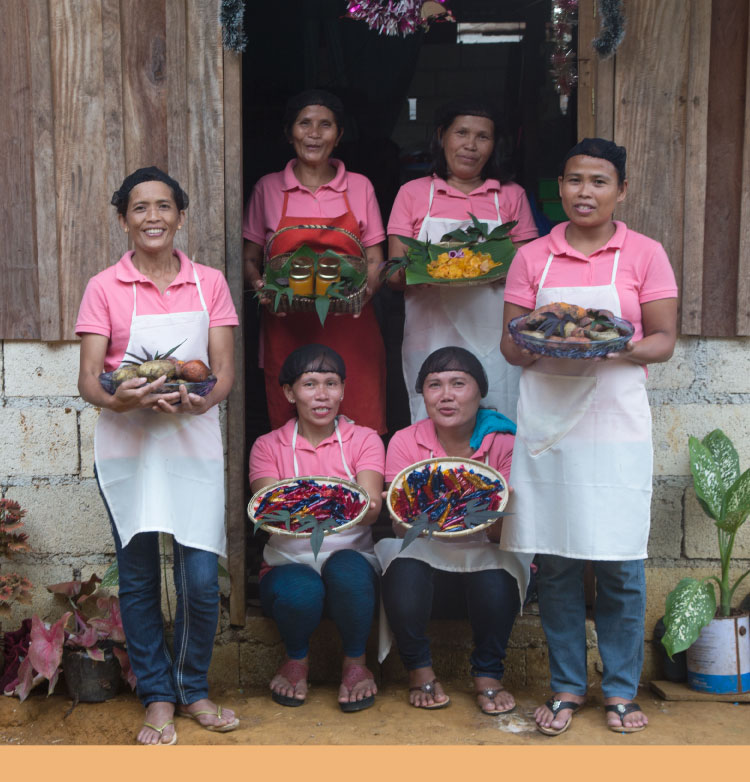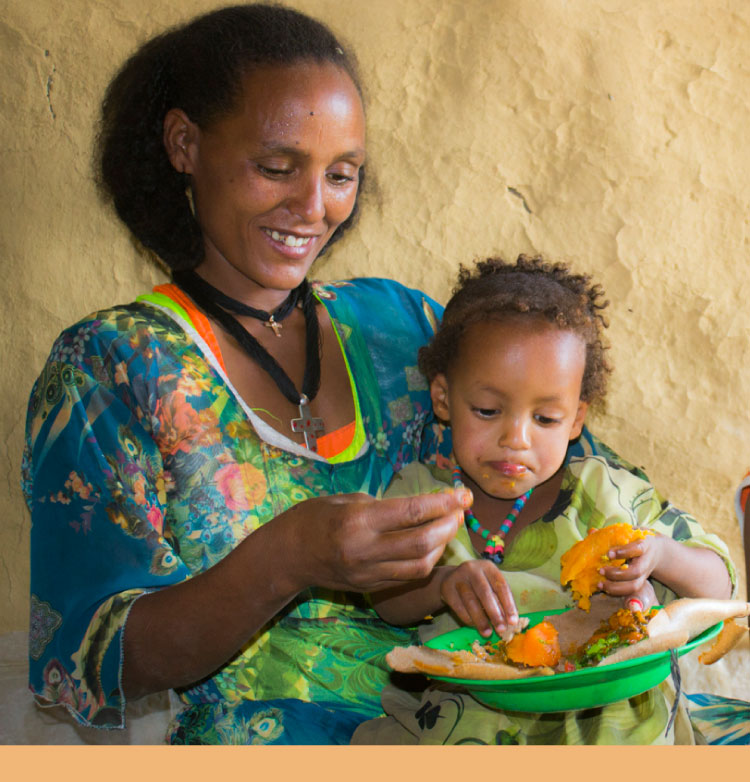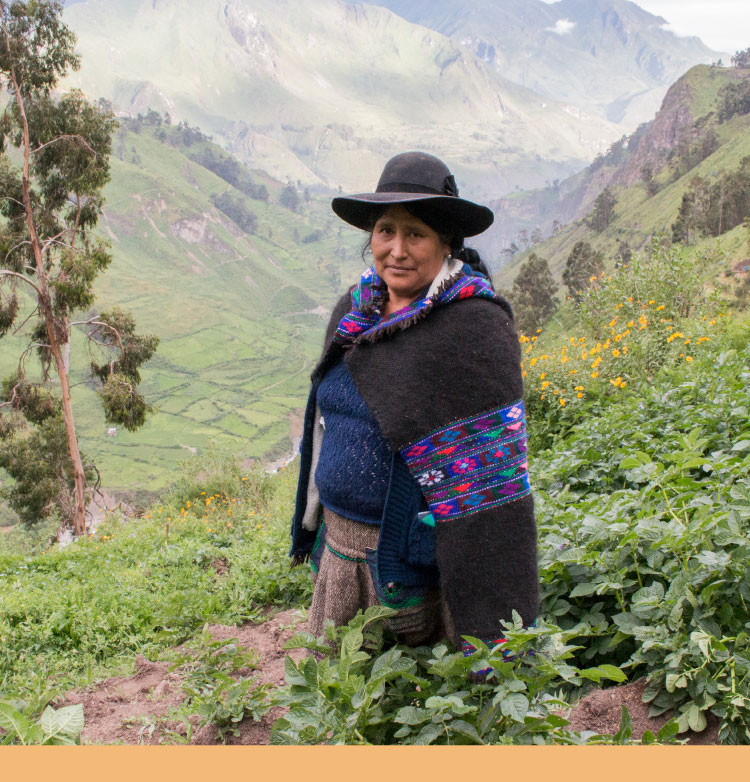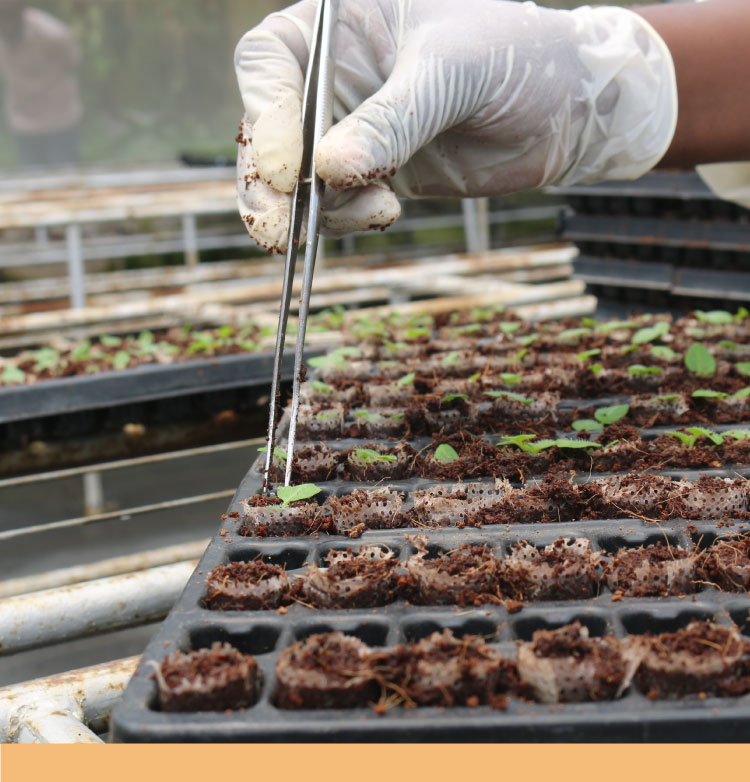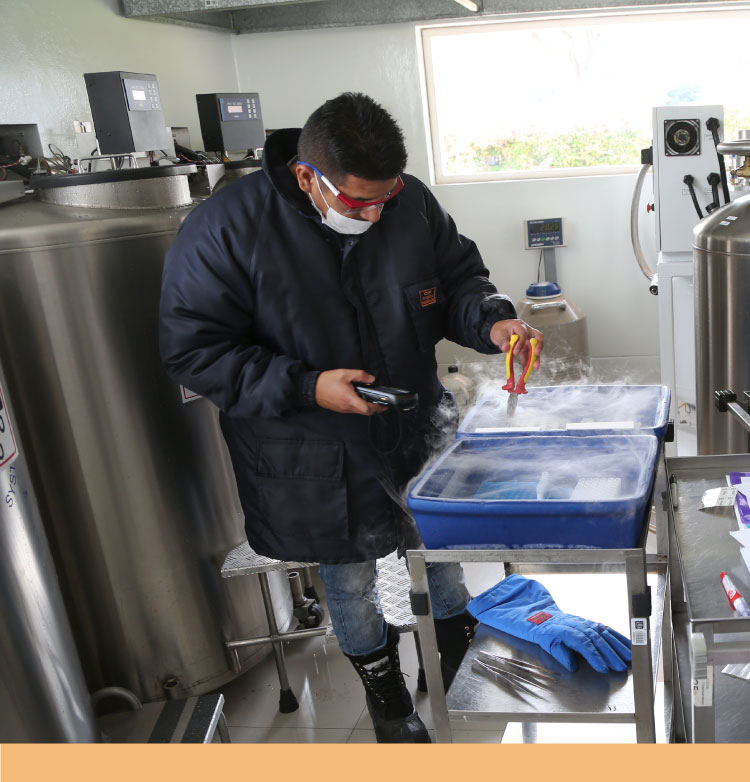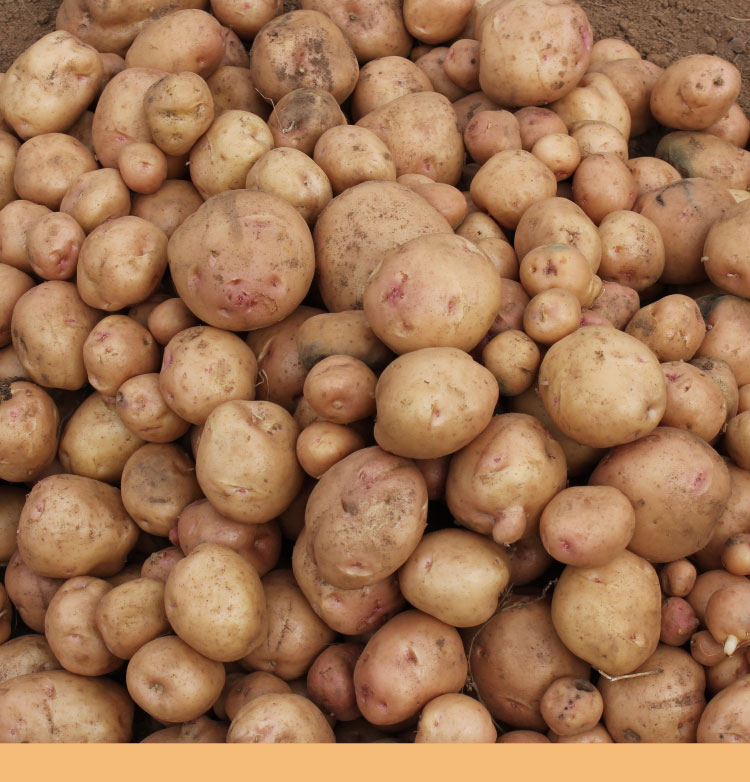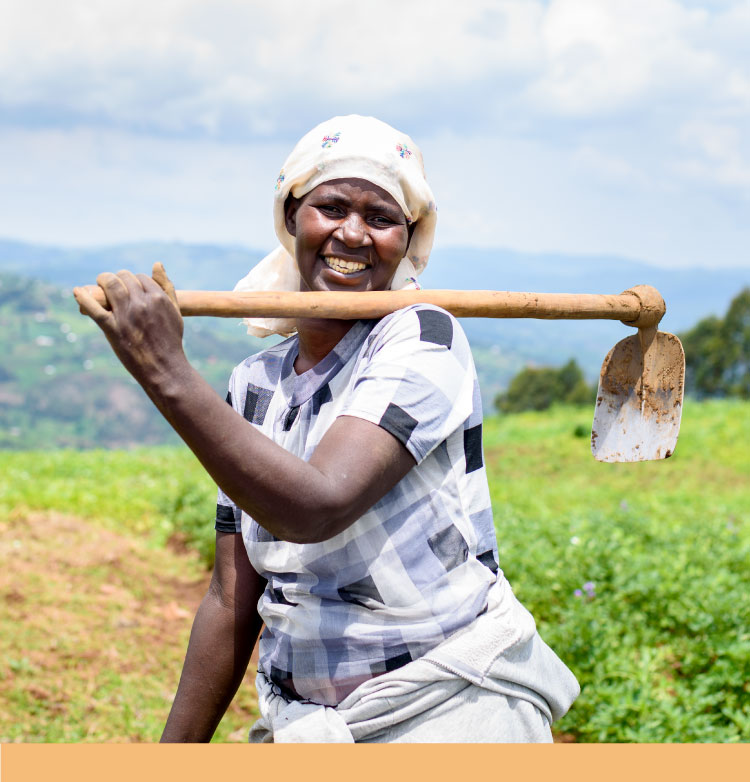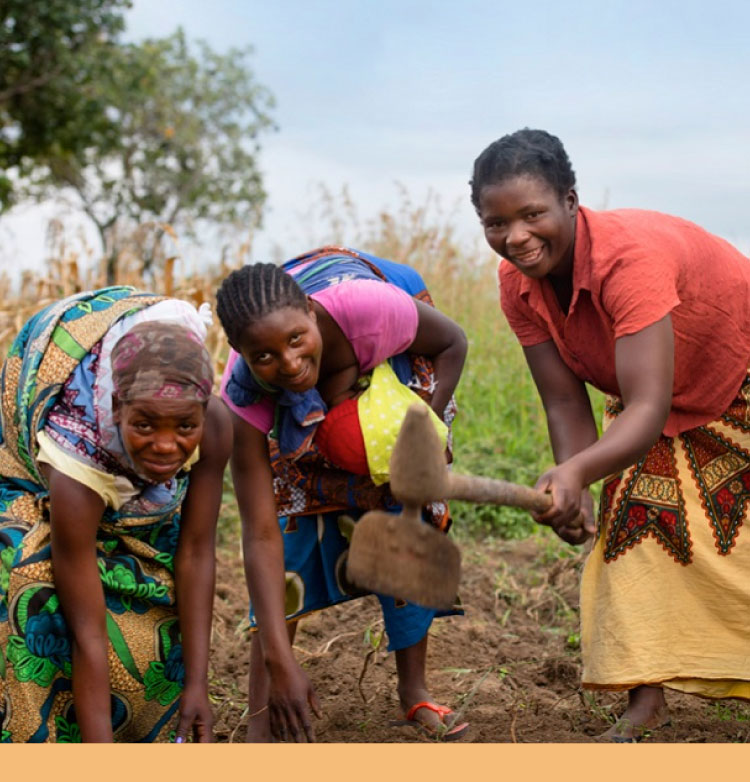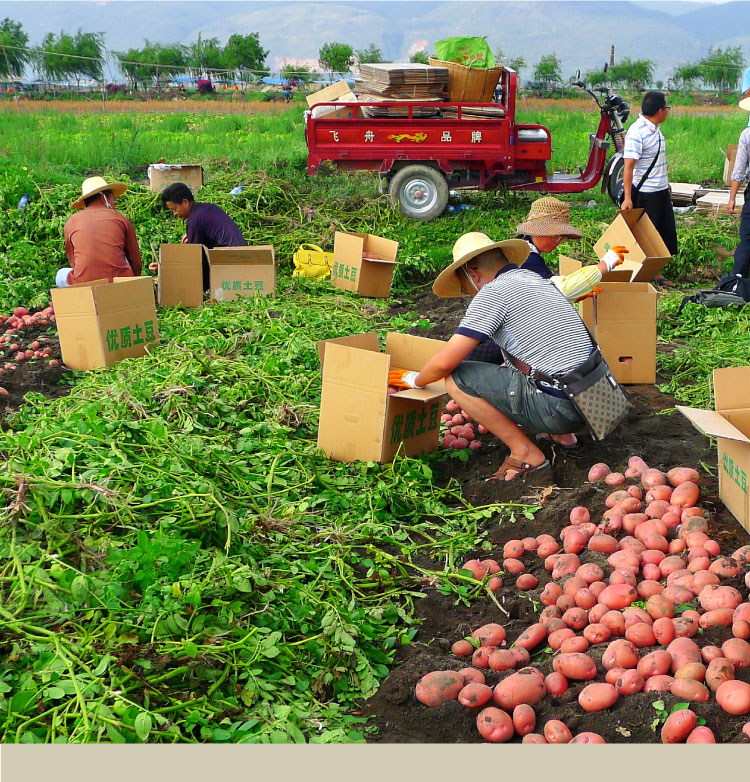Poverty reduction, livelihoods and jobs
More than one billion people eat potatoes and sweetpotatoes regularly. Taking advantage of this enormous potential market, since 2013 CIP and partners have helped more than two million small-scale farmers in Africa and Asia increase yields and incomes with quality potato seed, improved crop management, and gender-inclusive value chain approaches. Breeding to improve resilient, fast-maturing varieties of potato and sweetpotato make these crops reliable sources of income for small-scale farmers, particularly where increasing climate extremes cause other crops to fail.
KEY OUTCOMES
- More than 2.5 million farmers (direct beneficiaries, representing 20% of total beneficiaries) in the seven most important potato-producing Asian countries have adopted CIP-related potato varieties with disease resistance and other climate-smart traits and characteristics demanded by local markets. Approximately 25% of potato farmland in China, the world’s largest potato producer, is planted with CIP-related varieties. Just one variety, C88 variety, was cultivated on an estimated 125,000 hectares in Yunnan province alone, generating an estimated USD 2.8 billion of benefits to farmers and consumers between 1996 and 2015.
- Since viruses are a principal cause of low yields in sweetpotato, CIP and its Chinese partners set out to increase availability of virus-free sweetpotato planting material in the 1990s. We multiplied healthy plants in tissue culture, which were checked for virus infection using CIP-developed Elisa kits, and further multiplied under greenhouse conditions. The most advanced of these seed programs was implemented in Shandong province, in partnership with the Shandong. Academy of Agricultural Sciences, which started clean sweetpotato seed dissemination in 1994. An impact assessment estimated benefits for the 1988-2020 period at USD 145 million annually and a return on investment of 202%.
- Working with Peru’s National Agricultural Innovation Institute, CIP has developed and released 34 potatoes varieties adapted to diverse agro-ecologies, ranging from the Andes to coastal lowlands. High yielding and tailored to local culinary tastes, these disease-resistant and drought-tolerant varieties are grown on approximately 31% of farmland dedicated to potato in Peru. Impact studies on variety adoption demonstrate they have contributed to a 10% yield increase in Peru. The Canchán variety alone generates approximately USD 3 million a year for the Peruvian economy. Another popular variety, Unica, has also been released in Bangladesh, Bhutan, China, Kenya, Tajikistan and Tanzania, and is under evaluation for possible release in Ethiopia, Rwanda, Uzbekistan and Vietnam.
- Having developed the Participatory Market Chain Approach, CIP works with farmers, traders and retailers to add value to their crops from farm to fingers. First developed in the Andes to identify and create business opportunities, the approach began in Peru by targeting urban markets, and later export markets, for native potatoes. The program reached 100,000 smallholder farmers and market agents and resulted in dozens of food products that drove 70% growth and a 150% price increase in sales of native potatoes. This approach has since been implemented in Africa and Asia.
PROVEN INNOVATIONS
PROMISING INNOVATIONS AND INITIATIVES
Late blight disease is the number one constraint for potato farmers, costing them an estimated USD 3 billion a year globally in crop losses and agrochemical use–tens of millions of dollars in East Africa alone. Using new molecular techniques, CIP and partner scientists in Uganda transferred late-blight resistance genes from wild potato species into the popular Victoria potato. Identical to the variety farmers already grow, 3R Victoria is completely resistant to the pathogen. This geneticallyenhanced crop has significant potential to enhance food security across Africa, while reducing harm to the environment caused by excessive fungicide use. Ugandan potato experts estimate an adoption rate of 40-50% within 15 years of release.
Potato is an increasingly important food crop in Africa, where production has risen 15-fold since 1960. In Kenya alone, the potato value generates livelihoods for 2.5 million people, worth an estimated USD 480 million a year. However, yields would rise if disease-free seed were accessible. CIP has developed a technology—rooted apical cuttings—where one tissue culture plant can generate up to 2,000 tubers to serve as seed for future multiplication. This approach massively increases supply of disease-free potato, while generating employment in plant tissue culture labs and for seed producers. In Kenya in 2019, nursery sales increased by 44%, generating up to USD 800,000. So successful, this approach is now being promoted through CIP projects in India.





